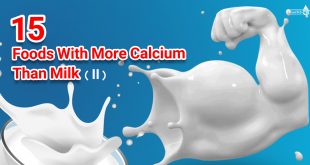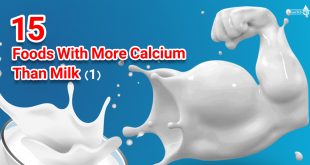When it comes to weight loss, some choose to eschew sensible and reasonable advice, like cutting back on sugary beverages and refined starches, increasing your intake of nonstarchy vegetables, and being mindful of added oil quantities. Instead, they turn to quasi-magical “fat-burning” foods. One year it’s acai berries, another it’s apple cider vinegar.
In “French Women Don’t Get Fat,” author Mireille Giuliano cites yogurt as a “French secret” that promotes weight loss. Putting aside some valid criticisms the book has received, it is worth examining this particular claim since it is also one that the dairy industry has made numerous times to promote its products. It’s also worth noting that, in 2007, the Federal Trade Commission (FTC) mandated that the dairy industry stop promoting dairy as a “weight-loss food” since the supporting evidence was not deemed to be strong enough!
The Calcium Claim

One of the central claims relating to yogurt and weight loss has to do with calcium — which, some scientists hypothesize, may affect appetite in individuals with low intakes of calcium. Experts have been quoted as saying that, when you don’t have enough calcium in your system, the brain detects that and promotes food intake. This implies that eating more calcium (via yogurt and other dairy products) can stop that from happening.
Does that theory hold water? The National Institutes of Health’s fact sheet on the ingredients in common weight loss supplements says that calcium has zero effect on your body weight, whether it be weight loss or preventing body gain.
It is also important to note that, even if the data on calcium helping with weight loss or weight management become more salient, dairy products are not the only source of calcium. The mineral is also found in dark leafy greens (for optimal absorption, choose ones low in oxalates, like kale, bok choy, and broccoli) as well as almonds, oranges, and garbanzo beans. It’s fortified in most nondairy milks as well.
The Protein Claim

The other explanation for yogurt’s alleged weight-loss qualities has to do with protein. Researchers have proposed that there are three main mechanisms at play when it comes to protein’s role in weight loss:
It increases satiety or fullness.
It boosts thermogenesis (the increase in energy expenditure above your metabolic rate), which also has an impact on satiety. Although diet-induced thermogenesis only makes up a small part of human metabolism, protein is the nutrient that has the most impact.
It maintains or increases growth in your fat-free mass if muscle-building activities are performed.
Again, though, yogurt is not the only food that offers protein. In fact, protein is abundant in the food supply, beyond animal products. Beans, legumes, whole grains, nuts, seeds, and even vegetables offer protein.
The Center for Science in Public Interest (CSPI) has also examined these claims. They found the scientific evidence to be shaky, mainly due to small sample sizes and limited studies. They specifically point out that the dairy industry’s ad campaigns are based on how just 46 people reacted to eating more dairy, in three small studies conducted by a researcher with ties to the dairy industry.
Additionally, the studies — which asked participants to eat three servings of yogurt per day — also had them restricting caloric intake, which of course will result in weight loss. You can lose weight eating 10 french fries a day if you reduce total calories; that does not make french fries a weight-loss food!
The Takeaway
Ultimately, and above all else, it is important to focus first and foremost on foods that support your health. Eat (don’t drink!) your fruits and vegetables. Make processed junk the rare exception. And make water your go-to beverage of choice.
Reference:
http://www.healthline.com/
 Parsi Teb Physical and Mental Health Journal
Parsi Teb Physical and Mental Health Journal 



